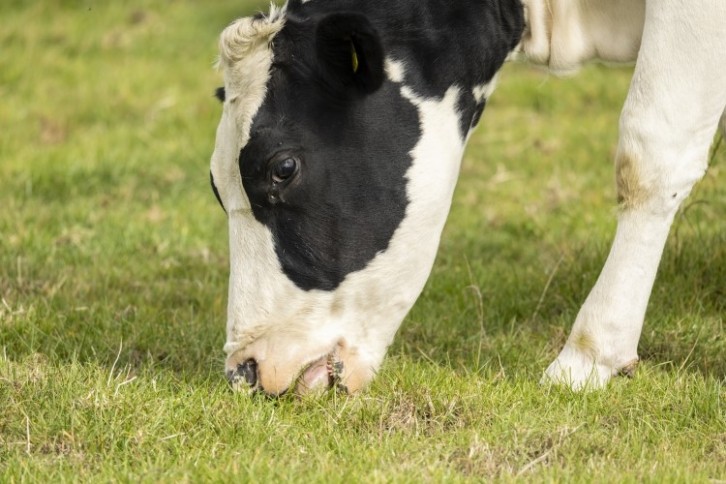Bovaer pilot achieves up to 42% enteric methane reduction from dairy cows

Conducted from January to March 2023, the trial saw Babybel maker Bel Group alongside Bel’s Milk Producers Association in the West of France (known as APBO) and dsm-firmenich conduct a pilot aimed at reducing methane emissions from dairy cows through the use of feed additive Bovaer.
The APBO is formed of around 700 dairy farms who have a supply contract with Bel in France. Bel collects 415 million liters of milk each year from the farms, and has for the past six years worked with farmers on ways to promote a more sustainable dairy industry and animal welfare. For example, farmers have now carried out a carbon audit and defined an action plan to reduce their emissions.
For this pilot project, five farms that were representative of the diversity of feed distribution equipment, type of ration at the trough and distribution arrangements seen across APBO farms were selected for the pilot. Bovaer was added at a rate of around a quarter teaspoon a day to the diet of dairy cows.
Data and analyses of ration samples were collected by Bel technicians during the test and interpreted by experts from Idele, the French institute for livestock breeding. Under optimal conditions of use, the reduction in enteric methane was estimated at between 29% and 42% depending on the farm over the two months of the study.
The results corroborate existing evidence that suggest 30% methane reduction can be expected on average.
Simon Bonnet, Director of Milk Purchasing for the Bel group, commented: "Bovaer offers immense potential for moving towards a low-carbon dairy industry, a strong and long-standing commitment of the Bel Group. Today, we are delighted to have been able to test this innovative solution in France and demonstrate its relevance, working in concert with our dairy farmers from APBO, Idele and dsm-firmenich.”
Yoann Lézé, Vice-Chairman of APBO, added: “As responsible milk producers, we keep a close eye on ways to reduce the carbon footprint of our farms, and are fully aware of the innovations coming onto the market, such as Bovaer.”
Slow-release version for pasture-grazed cows in the works
In July 2023, the Bel Group announced it will begin rolling out the feed additive to farms in its Slovak dairy basin, which supplies the Bel plant in Michalovce. The Slovak plant produces Babybel cheeses for consumers in the UK, Germany, the Czech Republic and Slovakia.
Meanwhile, dsm-firmenich is currently developing a slow-release form of the product which should also enable Bovaer to be active during the hours when cows are out at pasture.




